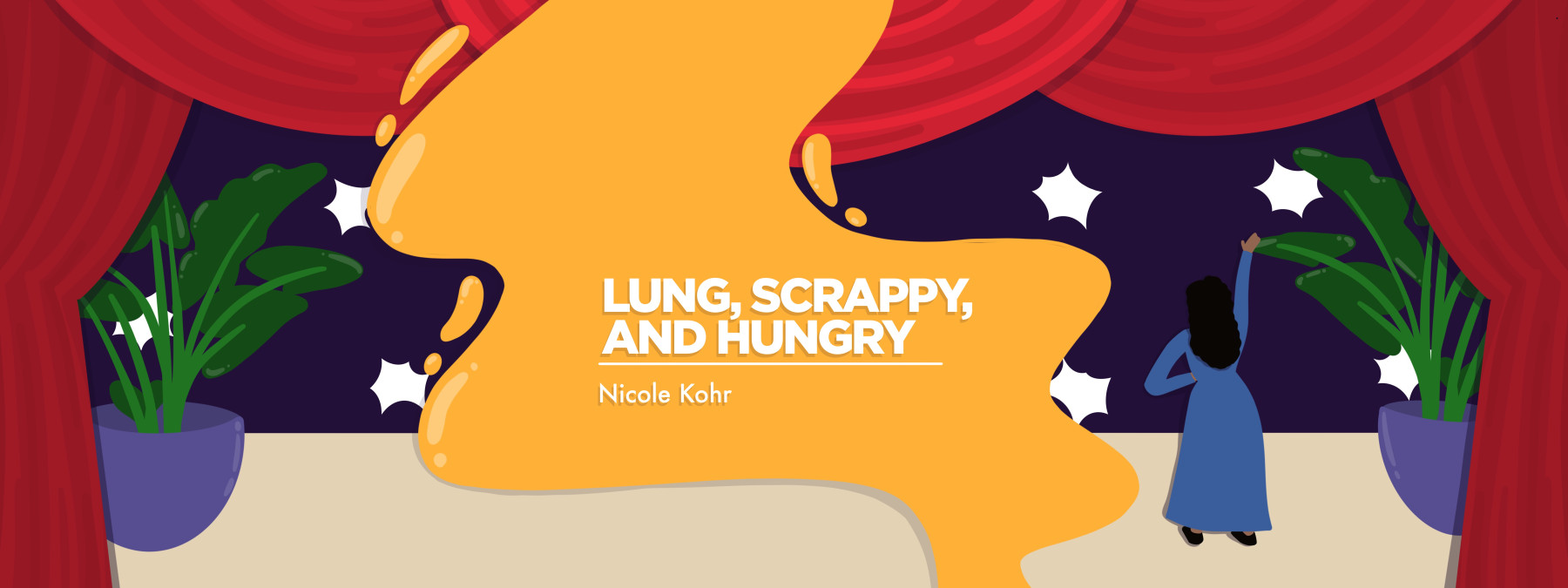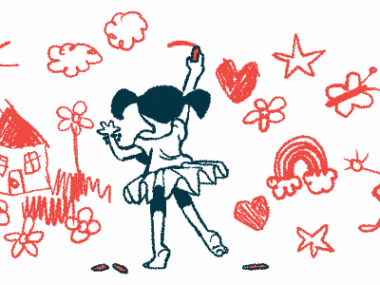Telling Healthy Colleagues About My Terminal Illness
My journey with cystic fibrosis is also a story about death
Written by |

I wanted to discuss my relationship with “my expiration date” and its social implications, particularly with healthy people my own age. As of 1997, when I was diagnosed with cystic fibrosis (CF), I was labeled a terminally ill patient. Sharing that information with acquaintances set the tone for our relationships, and my transparency reminds me of “Beetlejuice the Musical.”
“You’re invisible when you’re sad/ clocks tick and phones still ring”
The musical introduces itself as a show about death. Unlike the movie, which premiered in 1988, the musical (which premiered on Broadway in 2019) opens with a funeral and is proceeded by a dark and self-aware opening number. I like the opening because it immediately introduces you to Lydia’s state of mind — that of a teen girl who just experienced a terrible loss. And it’s true: Time passes after trauma.
However, while outsiders move on, the traumatized (in this case, me) remain trapped in a time warp. That is what it feels like to be chronically ill, but it’s a difficult feeling to explain to someone who’s inexperienced with chronic trauma.
“Now let’s skip the tears and start on the whole/ y’know/ being dead thing”
I also introduce my journey with CF as a story about death. Like Beetlejuice, however, my dark and occasionally inappropriate humor is seen as more than a coping mechanism. Acquaintances become put off or offended. On other occasions, presenting my story is met with a sympathetic gasp or tears. It’s not the listener’s responsibility to “react appropriately,” especially because appropriateness is subjective. In my case, however, I prefer to skip the tears and replace emotional discussions with logistics or a joke.
“Death can get a person stressed”
Only recently have my colleagues begun to dip their toes in bouts of medical trauma — meaning, they weren’t always equipped to make an emotional adjustment during my stories, and this is my first time reading medical posts by them. Again, it’s no one’s responsibility to respond like a therapist, but why does it feel like it’s my job to edit my experiences based on others’ comfort level? At the very least, I’ve earned the right to be more exhausted by death and trauma, haven’t I?
“We should have carpe’d way more diems”
I worked hard to create and embrace other labels. Still, I was naive about how much trauma I had and how little my friends had — at least in regards to their health.
“You make me want to live life to the fullest,” they’d say.
“You’re not already doing that?” I’d think.
If you’re not driven or inspired, you must see a long life ahead of you. I, on the other hand, never felt comforted by time. To this day, I write like I’m “running out of time” (a nod to “Hamilton”). It’s as if life told me, “You cannot out-achieve trauma,” and I’ve been on a mission to prove life wrong. It’s both exhausting and exhilarating — an experience a person must live through to understand, apparently.
“I have mastered the art/ of tearing convention apart”
Some of the kids had never been in a hospital before visiting me during tuneups — two-week hospital stays meant for IV antibiotic treatments. They were never threatened with an expiration date or watched as people their own age passed away from the same disease. Nor did they have to make difficult life choices based on a long-term decline. I could make a balloon animal and finish a science project while enduring a bronchoscopy. There were many experiences and tolerances that separated us, which made it hard to empathize with any short-term illness.
“So, how about we all make a start/ on the whole being dead thing”
These differences have driven a wedge between me and healthy people my own age. I wasn’t supposed to have this relationship with death — one that wavers between a threat, a joke, and a driving force. Unfortunately, a relationship with death was inevitable, and “chronic” is an underestimated word.
It’s become my responsibility to translate my experiences into something others can understand. I’m supposed to empathize, to comfort, all of this to avoid being alone or the girl who cried trauma. The trick is not to let this affect my ability to relate to other people my age.
First, I focus on the good in my life. I’m blessed with an amazing support system. Many of my colleagues don’t have this, which is why they reach out for support on social media. Second, I try to put myself in their shoes. They don’t know what they don’t know. Once their sympathy becomes empathy, I shouldn’t welcome them with a begrudging attitude. Coping together is a beautiful thing. I should say, “Welcome to the dark side. We have cookies.”
Better yet: “Welcome to a show about death.”
Note: Cystic Fibrosis News Today is strictly a news and information website about the disease. It does not provide medical advice, diagnosis, or treatment. This content is not intended to be a substitute for professional medical advice, diagnosis, or treatment. Always seek the advice of your physician or other qualified health provider with any questions you may have regarding a medical condition. Never disregard professional medical advice or delay in seeking it because of something you have read on this website. The opinions expressed in this column are not those of Cystic Fibrosis News Today or its parent company, Bionews, and are intended to spark discussion about issues pertaining to cystic fibrosis.








Leave a comment
Fill in the required fields to post. Your email address will not be published.